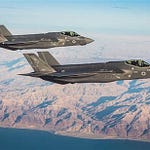The phone buzzes with an unfamiliar notification. Jeffrey Goldberg, Editor-in-Chief of The Atlantic, glances down to see an invitation from someone identifying themselves as Michael Waltz, National Security Advisor to President Trump. For two days, he watched in silence inadvertently witnessing history from inside a confidential Signal messaging group where top administration officials coordinated military strikes against Houthi rebels in Yemen.
This unprecedented breach of operational security—quickly dubbed “Signalgate”—exposes vulnerabilities in how modern governments conduct their most sensitive business. In an era where convenience often trumps security, the incident reveals systemic failures in the safeguarding of national defense information and raises questions about accountability, transparency, and the blurred lines between journalism, government, and global security networks.
The Breach and Its Implications
The Signal chat group titled “Houthi PC small group” included Vice President JD Vance, Defense Secretary Pete Hegseth, CIA Director John Ratcliffe, and White House Chief of Staff Susie Wiles among its 18 participants. Their exchanges revealed both operational details and policy disagreements about the planned military action.
Within the chat, Hegseth shared information that security experts consider inherently classified: precise timing for F-18 launches at 12:15 ET, strike windows beginning at 13:45, and details about Tomahawk missile launches. Real-time battle damage assessments followed as operations commenced: “Building collapsed. Had multiple positive ID,” Waltz messaged, later clarifying that “their top missile guy” had been killed.
Former national security officials express dismay that such discussions occurred on a commercial platform rather than in a Sensitive Compartmented Information Facility (SCIF), the secure spaces designed for such conversations. “Discussing operational details of a pending strike on an unsecured platform represents a fundamental breakdown in operational security protocols,” explains one former intelligence official who requested anonymity due to the sensitivity of the matter.
The White House has confirmed the chat’s authenticity. National Security Council spokesman Brian Hughes characterized it as “a demonstration of the deep and thoughtful policy coordination between senior officials” while stating the administration is “reviewing how an inadvertent number was added to the chain.”
[PHOTO: Aftermath of the F-18 strike on “missile guy” girlfriend’s house.]
[VIDEO: American jets bomb Saada, northern Yemen.]
Strategic Context: Israel at the Center
The conversations captured in the Signal chat provide a rare window into how geopolitical considerations shape U.S. military decision-making. Among the messages, Hegseth explicitly mentioned Israel as a motivating factor for immediate action, writing that one risk of waiting was that “Israel takes an action first — or Gaza cease fire falls apart — and we don’t get to start this on our own terms.”
This reference wasn’t incidental. Many of the Signal chat participants maintain strong pro-Israel or Zionist ties that inform their worldview and policy positions. Hegseth, a staunch supporter of Israel’s policies, has been documented wearing a visible Jerusalem Cross tattoo and has openly endorsed hardline positions, including expressing hope at a 2018 Jerusalem conference for a “miracle” that would lead to rebuilding the Temple on the Temple Mount—a highly contentious position even within Zionist circles.
National Security Advisor Michael Waltz, who inadvertently added Goldberg to the chat, has been described as having “an even stronger pro-Israel tilt” and has been an “outspoken backer of Israel throughout his career.” As a congressman, Waltz received substantial funding from pro-Israel lobbying groups, including AIPAC, totaling over $235,000. Before the Yemen operation, he had publicly recommended that Israel strike Iran’s nuclear facilities at Natanz.
Director of National Intelligence Tulsi Gabbard, while maintaining a complex political trajectory, has positioned herself as a staunch supporter of Israel in the Israel-Palestine conflict, labeling pro-Palestine protesters as “puppets” of “radical Islamist organization[s].” Her stance has attracted financial support from pro-Israel lobby groups.
The Houthis, an Iran-backed group, had been targeting not only international shipping in the Red Sea but also launching attacks against Israel in solidarity with Palestinians in Gaza. The U.S. strikes, presented publicly as primarily protecting freedom of navigation, were also implicitly supporting Israeli security interests.
When Vance expressed reservations about the operation, noting that only “3 percent of US trade runs through the Suez” compared to “40 percent of European trade,” the discussion became about balancing domestic political messaging with regional security commitments. “I just hate bailing Europe out again,” Vance wrote, to which Hegseth responded that he shared his “loathing of European free-loading” but argued for proceeding anyway.
The collective Zionist orientation of these key officials—combined with their inclusion of Goldberg, who served in the Israel Defense Forces during the First Intifada and has been called “the most influential journalist/blogger on matters related to Israel”—creates a much more complex picture than a simple communication error.
[PHOTO: Pete Hegseth]
Goldberg: Not Just Any Journalist
Of all possible journalists who might have received access to this sensitive conversation, Jeffrey Goldberg’s involvement presents particular complications. His inclusion raises questions about whether this was truly, as the administration claims, a simple error.
Goldberg has built his career on reporting focused on Israel, the Middle East, and national security—but his profile extends far beyond conventional journalism. Before becoming The Atlantic’s editor-in-chief, Goldberg served in the Israel Defense Forces as a prison guard at Ktzi’ot Prison during the First Intifada, where he guarded Palestinian detainees. This was during a period when Ktzi’ot held, according to Human Rights Watch, approximately one out of every 50 West Bank and Gazan males older than 16 . Palestinian human rights group al-Haq described conditions in the camp as “harsh and inhuman,” with reports documenting severe overcrowding.
Ktzi’ot was the largest detention camp run by the Israeli army during the First Intifada, holding three-quarters of all Palestinians detained by the army . Human rights organizations have documented widespread abuses in Israeli detention facilities during this period, including routine use of physical and psychological pressure during interrogations. Goldberg met Rafiq Hijazi, a PLO leader, during his time at the prison, whom he described as “the only Palestinian in the prison who understood Zionism.” This military service for a foreign power remains unusual among American journalists covering Middle East affairs.
After leaving Israel, Goldberg cultivated extraordinary access to power centers in both American and Israeli governments. He conducted five interviews with President Obama, who once spoke at Goldberg’s synagogue and thanked him for describing him as “the first Jewish president.” His access extends to Israeli leaders as well, with multiple interviews of Prime Minister Benjamin Netanyahu, Shimon Peres, and other senior Israeli officials.
Michael Massing of the Columbia Journalism Review described Goldberg as “the most influential journalist/blogger on matters related to Israel,” reflecting his unique position at the intersection of media, politics, and national security networks. His connections create an extensive web of influence that spans administrations and crosses partisan divides.
The Atlantic, where Goldberg serves as editor-in-chief, is owned by Laurene Powell Jobs, the widow of Apple co-founder Steve Jobs, who acquired a 70% stake in the publication in 2017. Under Goldberg’s leadership, the publication has made controversial editorial decisions that critics have questioned, including the 2021 article “The Great (Fake) Child-Sex-Trafficking Epidemic” published during the Ghislaine Maxwell trial.
These multilayered connections—his IDF service, access to American and Israeli leadership, and powerful institutional backing—make it particularly notable that of all journalists who might accidentally receive sensitive information about military planning in a region where Israel maintains core security interests, it was Goldberg who found himself silently witnessing the strategic deliberations of America’s highest security officials.
[PHOTO: Jeffrey Goldberg]
Not an Accident
The administration's explanation that a "staffer" mistakenly added Goldberg to the chat raises more questions than it answers. President Trump told NBC News it was "a mistake" while downplaying his own knowledge of Signal, claiming, "I don't know anything about Signal, I wasn't involved in this," though he acknowledged the app's widespread use throughout government.
Yet current and former intelligence officers familiar with communication security protocols question whether such an addition could truly be accidental. The Signal application requires multiple deliberate steps to add someone to a group chat—particularly someone not already in one's regular contacts. A user must select the specific phone number or saved contact, confirm the addition, and have administrator privileges within the group.
Current and former intelligence officers note that adding someone to a Signal group chat requires multiple deliberate steps. The user must select a specific contact, confirm the addition, and have administrator privileges within the group. “This type of addition doesn’t happen by accident,” notes a cybersecurity expert. “Every person added represents a deliberate action.”
"There's no such thing as a 'pocket dial' addition to a secure chat group," explains one cybersecurity expert. "In secure communications training, adding an unauthorized person to a classified discussion would be treated as a catastrophic breach, not a simple error."
This raises the uncomfortable possibility that Goldberg's addition wasn't entirely accidental. Given his extensive connections throughout the national security apparatus, military backgrounds, and decades of cultivating sources in both American and Israeli intelligence communities, some have questioned whether he maintains unofficial channels of communication with various intelligence services.
Choosing to Eavesdrop and Publish
The question of Goldberg’s decision-making during the incident merits closer examination. Upon realizing he had inadvertent access to sensitive national security deliberations, Goldberg faced several ethical crossroads. He could have immediately identified himself and exited the chat, privately notified officials of the security breach, or abstained from publishing the material despite having observed it. Instead, according to his own account, he remained silent, monitoring the conversations for days, only leaving the chat after confirming the strikes were real by checking social media reports of explosions in Yemen at the precise time Hegseth had indicated.
“I checked X and searched Yemen. Explosions were then being heard across Sanaa, the capital city,” Goldberg wrote in The Atlantic. “The Signal chat group, I concluded, was almost certainly real. Having come to this realization, one that seemed nearly impossible only hours before, I removed myself from the Signal group, understanding that this would trigger an automatic notification to the group’s creator.”
This sequence of events raises questions about both journalistic ethics and national security considerations. By remaining in the chat unannounced, Goldberg effectively maintained covert access to high-level security discussions during an active military operation. His choice to depart only after operations had commenced but before they concluded meant officials would have had no way to assess potential operational compromise during the strikes themselves.
Goldberg’s motivation for publishing the material likely contains multiple layers. As editor-in-chief of a prestigious publication, the journalistic value of exposing governmental lapses in secure communications represents a legitimate public interest. Yet his history with the Trump administration suggests potential political dimensions as well. In 2020, Goldberg authored a controversial Atlantic article claiming Trump had referred to fallen American soldiers as “losers” and “suckers”—reporting Trump vehemently denied and which generated significant backlash from the administration.
The timing of the Signal chat publication also merits examination. Goldberg released the initial article after the Yemen operation had already occurred, minimizing immediate operational security implications. When administration officials disputed his characterization, suggesting no sensitive information had been shared, he responded by publishing the full exchange to let readers “reach their own conclusions”—a decision that heightened the article’s political impact amid ongoing congressional scrutiny of the breach.
“The Atlantic had originally decided to withhold most of the detailed operational information contained in the chat,” Goldberg wrote in his follow-up piece. “But Trump administration officials have made a series of misleading statements about the nature of the information they shared,” necessitating the full release in his view.
These choices—to observe silently, exit strategically, and publish incrementally—reflect a calculated approach balancing journalistic duty, institutional prestige, and, likely, political animus. Goldberg was probably driven by a mix of commitment to transparency, a desire to bolster The Atlantic’s reputation, and antipathy toward an administration he’d clashed with before—most notably in his 2020 ‘losers and suckers’ exposé. His handling of the material, however, stretched journalistic discretion to a point that risked national security consequences.
Classified by Nature, Not Declaration
The administration has insisted no classified information was compromised. During Senate testimony, DNI Tulsi Gabbard stated that “there were not classified or intelligence equities that were included in that chat group at any time.” Defense Secretary Hegseth told reporters, “Nobody was texting war plans,” despite the detailed operational information contained in his own messages.
These denials rely on a narrow technical definition of classification that security experts find problematic. “Classification status derives from the nature of the information itself, not merely from official designations,” explains a former Defense Department classification authority. “Information about imminent military operations—particularly details about launch times, target locations, and weapon systems—is inherently classified regardless of whether officials explicitly label it as such.”
This distinction matters legally. The Espionage Act prohibits the unauthorized disclosure of information “relating to the national defense” regardless of formal classification status. The Federal Records Act and Presidential Records Act establish requirements for preserving government communications—requirements potentially violated by the use of Signal’s disappearing message feature.
Notably, Waltz adjusted the disappearing message settings during the operation. At the beginning, he set messages to vanish after one week, but mid-way through—after strikes had commenced and confirmations were coming in—he extended the retention period to four weeks. This adjustment raises questions about compliance with federal records preservation laws.
Inconsistent Political Narratives
Perhaps most striking about the Signalgate incident is the disconnect between the administration’s prior positions on information security and its current practices. Many officials involved in the Signal chat had previously condemned others for similar or less serious lapses.
During Hillary Clinton’s email controversy, Hegseth stated on Fox News that “if it was anyone other than Hillary Clinton, they would be in jail right now” for using “unclassified means” that foreign governments might target. Waltz criticized the Department of Justice for not pursuing charges against officials who sent sensitive messages to private accounts, questioning, “How is it Hillary Clinton can delete 33,000 government emails on a private server yet President Trump gets indicted for having documents he could declassify?”
This inconsistency between rhetoric and practice reveals how security principles often become subordinated to political convenience. When criticizing opponents, these officials presented themselves as stalwart defenders of proper classification procedures. Yet when operational expediency demanded quick communication, those same principles appeared expendable.
Subverting Record-keeping
At its core, Signalgate reveals an evolution in governmental communication: the deliberate circumvention of official record-keeping systems. While technologies like Signal offer security through encryption, they simultaneously enable officials to operate outside the accountability mechanisms established by decades of governance standards.
What makes this particularly concerning is the intentional use of Signal’s disappearing message feature, which Waltz adjusted during the operation. Messages initially set to vanish after one week were reprogrammed mid-operation to a four-week retention period—a deliberate manipulation of what would remain in the historical record and for how long.
This practice directly undermines transparency laws like the Presidential Records Act and Federal Records Act, which require the preservation of official communications precisely to enable congressional oversight and historical accountability. When deliberations about military strikes, strategic objectives, and targeting decisions occur on platforms designed to leave no trace, democratic governance itself is compromised.
The technical explanation offered by administration officials—that no “classified” information appeared in the chat—sidesteps the more fundamental issue. When officials conduct government business on platforms specifically chosen for their ability to erase communications, classification becomes a secondary concern to the intentional evasion of public accountability.
Unlike government systems, which integrate with archival infrastructure and maintain audit trails, Signal creates communication channels designed to resist both external access and institutional memory. This creates what security experts call “shadow governance”—a parallel system where consequential decisions leave few documentary traces.
The irony is that tools marketed for their enhanced security through encryption ultimately undermine democratic security by enabling officials to operate in darkness. This technological shift represents not merely a convenience choice but a governance crisis, where the public record of decision-making—the essential foundation of democratic accountability—becomes increasingly selective and manipulated.
When high officials normalize conducting sensitive business outside proper channels, they establish a precedent that inevitably spreads throughout government. The result is an accountability vacuum where citizens, historians, and even other government branches lose visibility into how the most consequential decisions are made and executed.
Trust and Accountability
As intelligence committee hearings proceed and investigations unfold, Signalgate has already damaged trust in government security practices. The incident raises fundamental questions about how modern democracies balance necessary secrecy with essential accountability.
For the public, the revelation that senior officials conduct sensitive business on commercial platforms erodes confidence in government’s ability to protect national secrets. For allies and partners who share intelligence with the United States, the breach raises concerns about America’s commitment to information security. And for adversaries, it provides both tactical insights and strategic reassurance that even at the highest levels of government, human error and convenience can compromise security.
The most enduring consequence may be the precedent it sets. When senior officials conduct war planning on commercial platforms without apparent consequences, it signals that convenience trumps security—a message that will inevitably shape the behavior of countless other government officials making daily decisions about how to communicate sensitive information.
In a democratic system dependent on both security and accountability, the balance between these competing values requires constant vigilance. Signalgate demonstrates how easily that balance can tilt, and how quickly the foundations of both security and accountability can erode when convenience becomes the primary consideration in how governments conduct their most sensitive business.
How many more Signalgates go on everyday that we don’t know about?
“Houthi PC small group” Signal Chat Transcript
Initial Setup
Yesterday
Michael Waltz added you to the group.
Disappearing message time was set to 1 week.
MAR added MAR.
Michael Waltz:
Team- establishing a principles group for coordination on Houthis, particularly for over the next 72 hours. My deputy Alex Wong is pulling together a tiger team at deputies/agency Chief of Staff level following up from the meeting in the Sit Room this morning for action items and will be sending that out later this evening.
Pls provide the best staff POC from your team for us to coordinate with over the next couple days and over the weekend.
Thx
4:28 PM
MAR:
Mike Needham for State
4:29 PM
JD Vance:
Andy baker for VP
4:29 PM
TG:
Joe Kent for DNI
4:30 PM
Scott B:
Dan Katz for Treasury
4:36 PM
Pete Hegseth:
Dan Caldwell for DoD
4:53 PM
Brian:
Brian McCormack for NSC
6:34 PM
Day of Operation
Today
Michael Waltz:
Team, you should have a statement of conclusions with taskings per the Presidents guidance this morning in your high side inboxes.
State and DOD, we developed suggested notification lists for regional Allies and partners.
Joint Staff is sending this am a more specific sequence of events in the coming days and we will work w DOD to ensure COS, OVP and POTUS are briefed.
8:05 AM
JD Vance:
Team, I am out for the day doing an economic event in Michigan. But I think we are making a mistake.
3 percent of US trade runs through the suez. 40 percent of European trade does. There is a real risk that the public doesn’t understand this or why it’s necessary.
The strongest reason to do this is, as POTUS said, to send a message. But I am not sure the president is aware how inconsistent this is with his message on Europe right now. There’s a further risk that we see a moderate to severe spike in oil prices.
I am willing to support the consensus of the team and keep these concerns to myself. But there is a strong argument for delaying this a month, doing the messaging work on why this matters, seeing where the economy is, etc.
8:16 AM
Joe Kent:
There is nothing time sensitive driving the time line. We’ll have the exact same options in a month.
The Israelis will likely take strikes & therefore ask us for more support to replenish whatever they use against the Houthis. But that’s a minor factor.
I will send you the unclass data we pulled on BAM shipping.
8:22 AM
John Ratcliffe:
From CIA perspective, we are mobilizing assets to support now but a delay would not negatively impact us and additional time would be used to identify better starting points for coverage on Houthi leadership
8:26 AM
Pete Hegseth:
VP:
I understand your concerns — and fully support you raising w/ POTUS. Important considerations, most of which are tough to know how they play out (economy, Ukraine peace, Gaza, etc). I think messaging is going to be tough no matter what — nobody knows who the Houthis are — which is why we would need to stay focused on: 1) Biden failed & 2) Iran funded.
Waiting a few weeks or a month does not fundamentally change the calculus. 2 immediate risks on waiting: 1) this leaks, and we look indecisive; 2) Israel takes an action first — or Gaza cease fire falls apart — and we don’t get to start this on our own terms. We can manage both.
We are prepared to execute, and if I had final go or no go vote, I believe we should. This not about the Houthis. I see it as two things: 1) Restoring Freedom of Navigation, a core national interest; and 2) Reestablish deterrence, which Biden cratered.
But, we can easily pause. And if we do, I will do all we can to enforce 100% OPSEC. I welcome other thoughts.
8:27 AM
Michael Waltz:
The trade figures we have are 15% of global and 30% of container. It’s difficult to break that down to US. Specific because much of the container either going through the red sea still or around the Cape of Good Hope our components going to Europe that turns into manufactured goods for transatlantic trade to the United States.
Whether we pull the plug or not today European navies do not have the capability to defend against the types of sophisticated, antiship, cruise missiles, and drones the Houthis are now using. So whether it’s now or several weeks from now, it will have to be the United States that reopens these shipping lanes. Per the president’s request we are working with DOD and State to determine how to compile the cost associated and levy them on the Europeans.
8:32 AM
JD Vance:
@Pete Hegseth if you think we should do it let’s go.
I just hate bailing Europe out again. Let’s just make sure our messaging is tight here. And if there are things we can do upfront to minimize risk to Saudi oil facilities we should do it.
8:45 AM
Pete Hegseth:
VP: I fully share your loathing of European free-loading. It’s PATHETIC.
But Mike is correct, we are the only ones on the planet (on our side of the ledger) who can do this. Nobody else even close. Question is timing. I feel like now is as good a time as any, given POTUS directive to reopen shipping lanes. I think we should go; but POTUS still retains 24 hours of decision space.
8:49 AM
S M:
As I heard it, the president was clear: green light, but we soon make clear to Egypt and Europe what we expect in return. We also need to figure out how to enforce such a requirement. EG, if Europe doesn’t remunerate, then what? If the US successfully restores freedom of navigation at great cost there needs to be some further economic gain extracted in return.
9:35 AM
Pete Hegseth:
Agree
9:46 AM
Operation Updates
Pete Hegseth:
TEAM UPDATE:
TIME NOW (1144et): Weather is FAVORABLE. Just CONFIRMED w/ CENTCOM we are a GO for mission launch.
1215et: F-18s LAUNCH (1st strike package)
1345: “Trigger Based” F-18 1st Strike Window Starts (Target Terrorist is @ his Known Location so SHOULD BE ON TIME — also, Strike Drones Launch (MQ-9s)
1410: More F-18s LAUNCH (2nd strike package)
1415: Strike Drones on Target (THIS IS WHEN THE FIRST BOMBS WILL DEFINITELY DROP, pending earlier “Trigger Based” targets)
1536: F-18 2nd Strike Starts — also, first sea-based Tomahawks launched.
MORE TO FOLLOW (per timeline)
We are currently clean on OPSEC.
Godspeed to our Warriors.
19m
JD Vance:
I will say a prayer for victory
12:13 PM
Michael Waltz set disappearing message time to 4 weeks.
Michael Waltz:
VP. building collapsed. Had multiple positive ID. Pete, Kurilla, the IC, amazing job.
1:48 PM
JD Vance:
What?
1:54 PM
Michael Waltz:
Typing too fast. The first target - their top missile guy - we had positive ID of him walking into his girlfriend’s building and it’s now collapsed.
2:00 PM
JD Vance:
Excellent
2:01 PM
John Ratcliffe:
A good start
2:36 PM
Michael Waltz:
30m
MAR:
Good Job Pete and your team!!
5:14 PM
Michael Waltz:
The team in MAL did a great job as well.
5:15 PM
S M:
Great work all. Powerful start.
5:18 PM
Pete Hegseth:
CENTCOM was/is on point. Great job all. More strikes ongoing for hours tonight, and will provide full initial report tomorrow. But on time, on target, and good readouts so far.
5:20 PM
Susie Wiles:
Kudos to all - most particularly those in theater and CENTCOM! Really great. God bless.
5:21 PM
Steve Witkoff:
5:47 PM
TG:
Great work and effects!
6:35 PM














Share this post